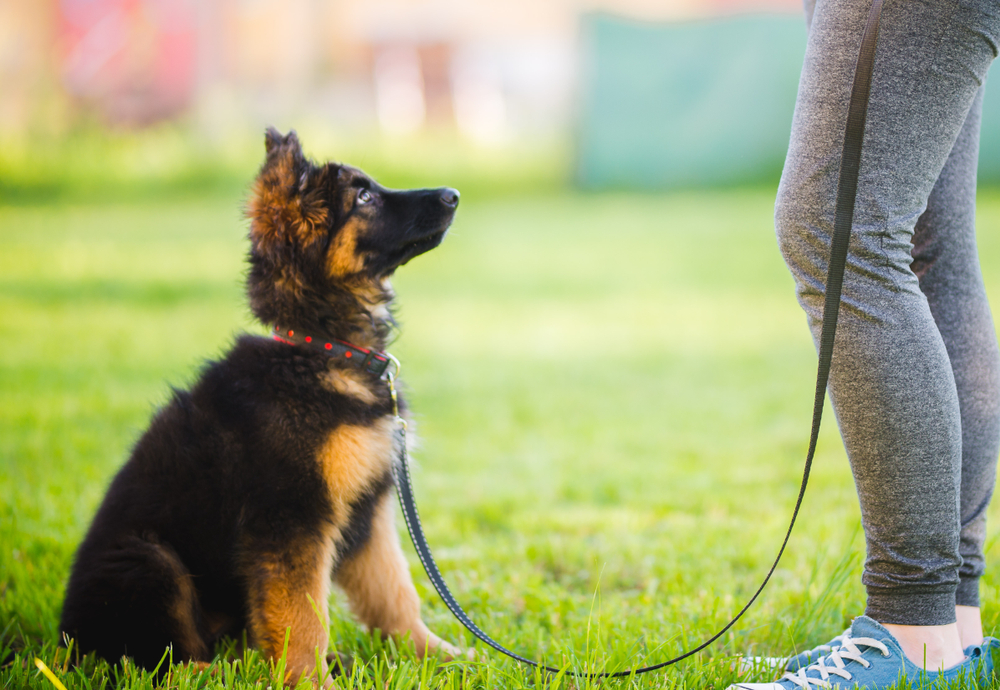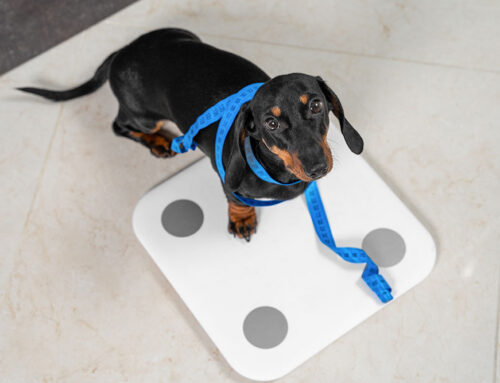Nothing is more adorable than a brand new bundle of fur with puppy breath—except maybe a feisty little kitten. As you welcome a new puppy into your home and heart, you may be overwhelmed with how much care and work goes into ensuring your tiny pup starts off on the right paw and grows up strong, healthy, and happy. Although you may be at your wit’s end with chewed shoes, pee puddles, and howling through the night, your Driftwood Animal Hospital team is here to help your new puppy settle into your family and become a wonderful companion. Take a look at our in-depth puppy care guide that covers all the necessities for your new pet’s first year.
Scheduling routine wellness care for your puppy
Routine wellness care is one of the most critical aspects of helping your new furry bundle of joy get a great start in life. By preventing a multitude of deadly infectious diseases, parasitic infections, and behavior issues, your puppy will have a better chance of living a long, healthy, and happy life. During your puppy’s wellness visits at Driftwood Animal Hospital, one of our veterinarians will cover a substantial amount of information about new puppy care, and will perform various preventive care measures. Your furry pal’s wellness care includes:
- Vaccinations — Puppy vaccinations follow a series that often begin between 6 and 8 weeks of age, are boostered every three to four weeks, and end between 15 and 16 weeks of age. Core vaccinations include rabies, canine distemper, adenovirus type 2, and parvovirus, all highly contagious diseases that cause serious, and sometimes fatal, illness. Non-core vaccinations—those based on lifestyle and exposure risk—include Bordetella (i.e., kennel cough), leptospirosis, and Lyme disease.
- Parasite prevention — Puppies are often born with roundworms contracted from their mother’s milk or passed in utero, but they can also be infected with whipworms, hookworms, giardia, and coccidia. If they’ve had fleas, they can also have tapeworms. A fecal exam is essential for determining if your new pup has intestinal parasites, and the best deworming protocol for eliminating the infection. In addition to intestinal parasite treatment and prevention, your new puppy will need heartworm, flea, and tick prevention to shield them from harmful parasitic diseases.
- Physical exams — During each of your puppy’s wellness visits, our veterinarian will perform a thorough physical exam to check for potential health issues, such as an umbilical hernia, physiologic heart murmur, cryptorchidism, or dental defects. We’ll monitor your puppy’s growth and development to ensure they’re on the right path for their breed and age.
Feeding your puppy
Proper nutrition is vital for your puppy to grow into a strong, healthy, adult dog. Choose a puppy food that is based on your pet’s breed or size. For example, your Great Dane puppy needs giant-breed puppy food, rather than a small-breed formula. The calcium and phosphorus levels in giant-breed puppy formulas are carefully calculated to prevent rapid bone growth and orthopedic issues. If you’ve welcomed a mixed-breed puppy into your family and are unsure what formula to select, ask our veterinarian for advice.
Socializing your puppy
Socialization for puppies is as critical for their health as vaccinations. Consider positive socialization a “vaccination” against behavior problems, such as fear, aggression, and anxiety. The puppy socialization period is a short window of time that typically occurs between 3 and 14 weeks of age, when your puppy is most open and accepting of new things. During this time, expose your puppy to as many new places, people, and pets as possible, in a positive way, and at your pet’s pace. Never force your puppy into unwanted interactions, and praise and reward them for exploring a new ground texture, strange person, or the nail clippers. A trainer can help with socializing your puppy, or you can follow this checklist.
Training your puppy

Training your new pup goes hand-in-hand with socialization, and can often be accomplished through a well-rounded puppy preschool class. Most puppy classes combine fun socialization sessions with training obedience commands, which are essential for a well-mannered dog. Puppy classes also offer tips on house and crate training, along with problem behavior management, such as biting, jumping, and chewing.
Spaying or neutering your puppy
To avoid problem behaviors, infections, and reproductive cancers, we recommend spaying or neutering your new puppy. The sterilization procedure is scheduled according to your puppy’s estimated adult weight and any health issues that need addressing, such as cryptorchidism, a recessed vulva, or an umbilical hernia. In general, larger breeds will be sterilized later to allow more growth time, while some toy and small breeds may be spayed or neutered as young as 6 months. Giant breeds may take 18 months to mature enough to be sterilized, but our veterinarian will discuss the best timing for your pet’s procedure during their wellness visits.
An overwhelming amount of information about caring for a new puppy, especially pertaining to their health and well-being, is available, but your Driftwood Animal Hospital team is here for you every step of the way. If you’ve welcomed a new pup into your family, call us to schedule their first wellness visit. Or, if you’ve adopted an adorable new kitten, watch for our next blog post, which covers the basics of kitten care.








Leave A Comment